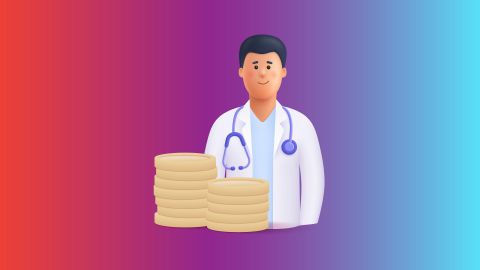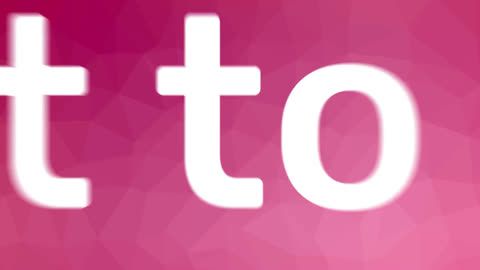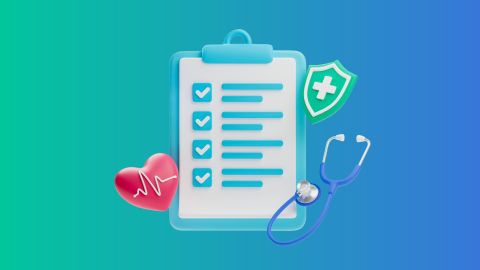Importance of Health Economist
- Resource allocation: Health economists provide data and analytical tools to help policymakers distribute healthcare resources efficiently, maximising overall population health outcomes.
- Cost-effectiveness: They assess the value of medical interventions, guiding decisions on programs and treatments that offer the greatest benefit at reasonable costs.
- Health policy development: Their expertise informs evidence-based policies aimed at improving public health, reducing disparities, and maintaining sustainable healthcare systems.
- Behavioural economics: They study how behaviours influence health decisions to design interventions that effectively encourage positive health outcomes.
- Global health: They examine economic factors affecting pandemics, migration, and climate change to ensure equitable access to healthcare worldwide.
- Shaping healthcare systems: They analyse healthcare systems at a macro level to enhance quality, efficiency, and effectiveness.
- Enhancing public health: They promote healthy behaviours and provide data-driven recommendations to support a healthier population.
Example of health economist
A health economist might assess a new drug’s cost-effectiveness to determine whether its benefits outweigh its costs for the healthcare system. Another example is analysing the economic impact of a proposed policy, such as reallocating healthcare resources during a pandemic, to guide policymakers in making informed funding and service decisions.
Key responsibilities of a health economist
A health economist plays a vital role in making healthcare systems more efficient, affordable, and equitable. Here's what their job typically involves:
- Analysing healthcare data to understand costs, outcomes, and patterns across patient groups
- Advising policymakers by offering data-driven recommendations for better health policies
- Evaluating public health programmes to assess their cost-effectiveness and overall impact
- Guiding the allocation of limited healthcare resources to improve efficiency and access
- Reviewing new medical technologies to determine their economic value before adoption
- Studying healthcare markets, including pricing, supply, and demand trends
- Supporting public health goals by promoting affordability, accessibility, and equity
Their work supports smarter decision-making across hospitals, governments, and insurers.
Health economists often collaborate with senior healthcare leaders such as a Medical director to implement cost-effective strategies.
Demand for healthcare economists
The rising demand for healthcare economists is driven by changing demographics, policy shifts, and global health challenges. Here are the main reasons behind this growing need:
- Ageing populations increasing pressure on healthcare systems, requiring cost-efficient care models
- Policy reforms focusing on affordability and service quality, demanding expert economic analysis
- Developing nations expanding healthcare access, creating demand for strategic resource allocation
- Global health crises like pandemics reinforcing the need for economic planning and response
- Complex health systems needing data interpretation to guide sustainable policy decisions
- Greater focus on equitable and evidence-based healthcare driving specialised economic roles
As healthcare systems evolve, economists help strike the balance between cost, access, and quality.
Requirements to become a health economist
To pursue a career as a health economist, candidates need a combination of academic qualifications, technical abilities, and sector-specific experience. Below are the key requirements:
- Educational background: A bachelor’s degree in economics, public health, statistics, or related fields is essential; advanced roles often require a master’s or PhD in health economics.
- Analytical and statistical skills: Ability to interpret complex datasets using tools like R, SAS, or STATA to inform evidence-based decisions.
- Communication abilities: Clear presentation of findings to both technical and non-technical stakeholders, including policymakers and healthcare leaders.
- Healthcare sector exposure: Internships, research projects, or practical experience in healthcare settings provide valuable insights and build professional networks. Medical graduates preparing for assessments like the NEXT exam can also explore health economics as a career path.
- Problem-solving mindset: Capacity to develop cost-effective, innovative solutions to improve healthcare access, efficiency, and outcomes.
- Ongoing learning: Keeping pace with policy changes, new research methods, and evolving economic models ensures relevance and growth in the field.
These qualifications together prepare individuals to drive real change in health policy and economic planning.
How to become a healthcare economist?
If you are considering a career as a health economist, here are the steps you need to take:
- Earn a bachelor’s degree: Focus on economics, public health, or a related discipline
- Gain relevant experience: Internships, volunteer work, or entry-level positions in healthcare settings. Obtain credentials: While health economists don't require a Medical license, having clinical credentials can enhance career prospects in healthcare economics.
- Pursue advanced education: Obtain a Master’s or Ph.D. in health economics or a related field
- Specialise: Choose a specific area of healthcare economics, such as public health policy or pharmaceutical economics
- Stay updated: Continuously enhance your skill set through workshops, certifications, and networking
Advantages of becoming a healthcare economist
There are numerous benefits to pursuing a career as a health economist:
- High demand: Increasing job opportunities in various sectors
- Competitive salary: Attractive compensation packages
- Meaningful work: Significant impact on public health and policy
- Career growth: Opportunities for advancement and specialisation
- Work-life balance: Potential for flexible working conditions
Disadvantages of becoming a healthcare economist
However, like any profession, becoming a health economist has its cons:
- Intensive education: Requires advanced degrees, which can be time-consuming and costly
- High responsibility: Pressure to provide accurate and impactful analyses
- Complex subjects: Involves dealing with complicated data and concepts
- Job market competition: Competitive field requiring continuous skill enhancement
- Work pressure: Need to handle deadlines and project demands efficiently
Scope of health economist
- Policy analysis and recommendations: Health economists offer evidence-based guidance to enhance healthcare policies, ensuring equity and broader accessibility.
- Cost-effectiveness assessment: They evaluate the economic efficiency and value of treatments, technologies, and public health initiatives.
- Resource allocation: Advise on optimal use of limited healthcare resources, factoring in opportunity costs.
- Health Technology Assessment (HTA): Analyse and assess new medical technologies to guide healthcare decision-making.
- Market analysis: Examine healthcare markets, including pricing, supply, and demand dynamics.
- Global health challenges: Address issues such as migration, climate change, pandemics, and health disparities.
- Modelling and forecasting: Predict future spending trends and evaluate policy impacts.
- Promoting accessible healthcare: Support policies and strategies that enhance affordability and equitable access to healthcare services.
Conclusion
Becoming a health economist is a rewarding journey with significant professional and personal benefits. By understanding the meaning of being a health economist and the steps involved, along with gaining exposure to healthcare finance, you can position yourself for a thriving career in this field. For those in the medical profession needing financial support, the Bajaj Finserv Doctor Loan and Professional Loan offers an excellent solution to fund your educational and professional advancements. Explore this career path and make a meaningful impact on the healthcare system.





